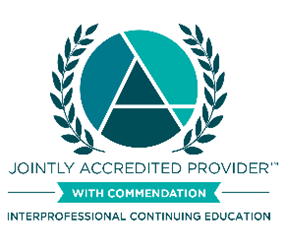Recognition and Management of Alcohol Use Disorder in Older Adults in Primary Care - February 26, 2024
This site is for learners who attended the live February 26, 2024, program to claim credit.
Claiming Credit
Thank you for participating in this program. Once logged in, please click on "Take Course" on the right-hand side and your enrollment will be recorded. You will be prompted to complete the evaluation and claim your credit on the following page.
Target Audience
Primary care physicians, internists, family practice physicians, nurse practitioners, nurses, and physician assistants
Learning Objectives
- Identify risk factors for alcohol use disorder in older adults.
- Utilize the AUDIT and the SMAST-G to screen for alcohol misuse in older adults.
- Diagnose alcohol use disorder in older adults using the DSM-5 criteria.
- Compare medications to help older adults decrease alcohol intake.
 In support of improving patient care, Boston University Chobanian & Avedisian School of Medicine is jointly accredited by the Accreditation Council for Continuing Medical Education (ACCME), the Accreditation Council for Pharmacy Education (ACPE), and the American Nurses Credentialing Center (ANCC), to provide continuing education for the healthcare team.
In support of improving patient care, Boston University Chobanian & Avedisian School of Medicine is jointly accredited by the Accreditation Council for Continuing Medical Education (ACCME), the Accreditation Council for Pharmacy Education (ACPE), and the American Nurses Credentialing Center (ANCC), to provide continuing education for the healthcare team.
Boston University Chobanian & Avedisian School of Medicine designates this live activity for a maximum of 1.0 AMA PRA Category 1 Credit™. Physicians should claim only the credit commensurate with the extent of their participation in the activity.
This program meets the criteria of the Massachusetts Board of Registration in Medicine for 1 hour of opioid education.
ADA statement: To request reasonable accommodations for a disability please contact [email protected], in writing, at least two weeks prior to the activity.
Available Credit
- 1.00 AMA PRA Category 1 Credit™
Boston University Chobanian & Avedisian School of Medicine designates this Enduring activity for a maximum of 1.00 AMA PRA Category 1 Credit™. Physicians should claim only the credit commensurate with the extent of their participation in the activity.
- 1.00 MA Opioid Education Statement
- 1.00 Participation

 Facebook
Facebook X
X LinkedIn
LinkedIn Forward
Forward